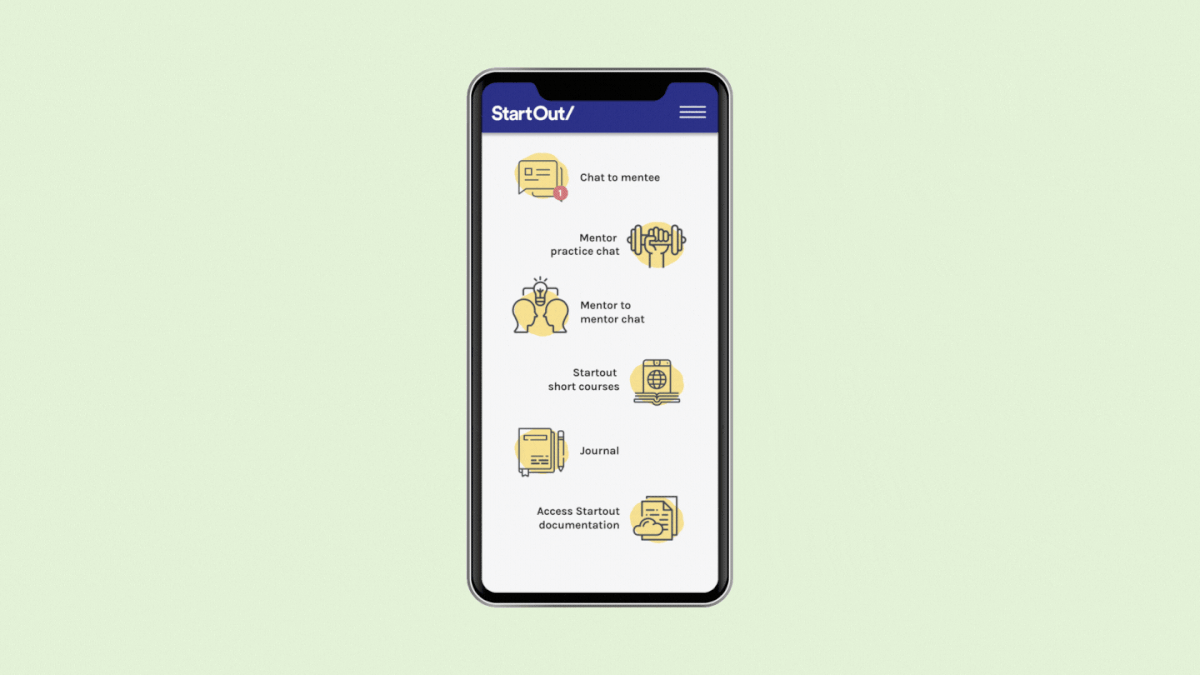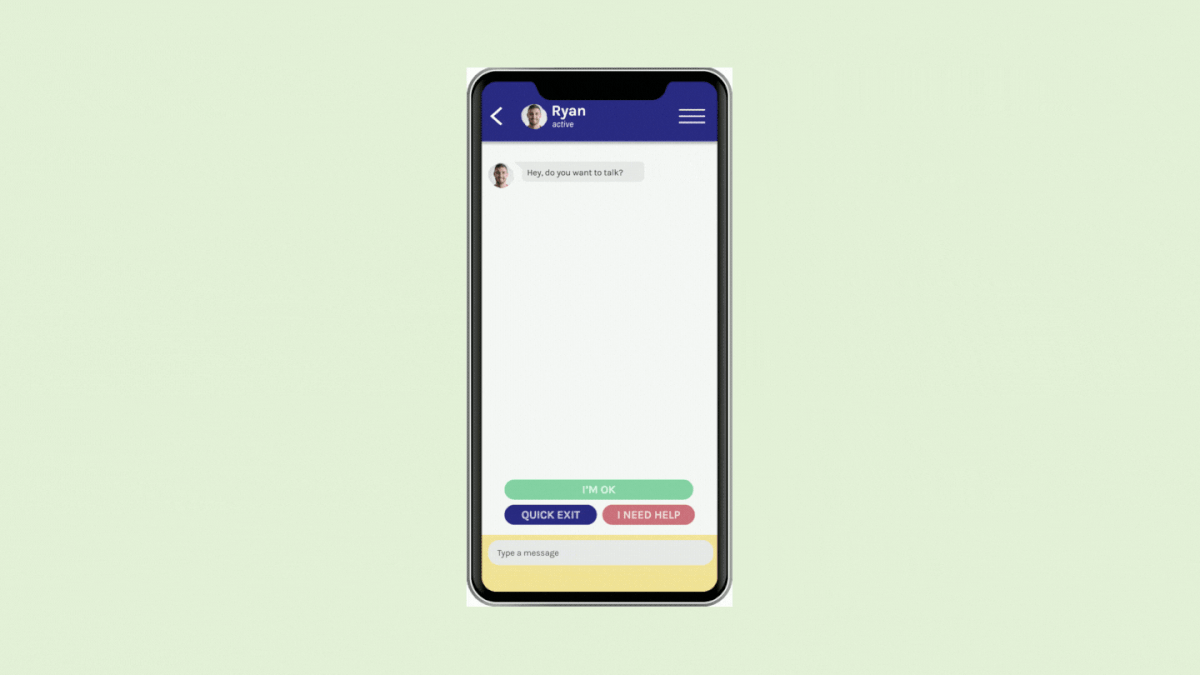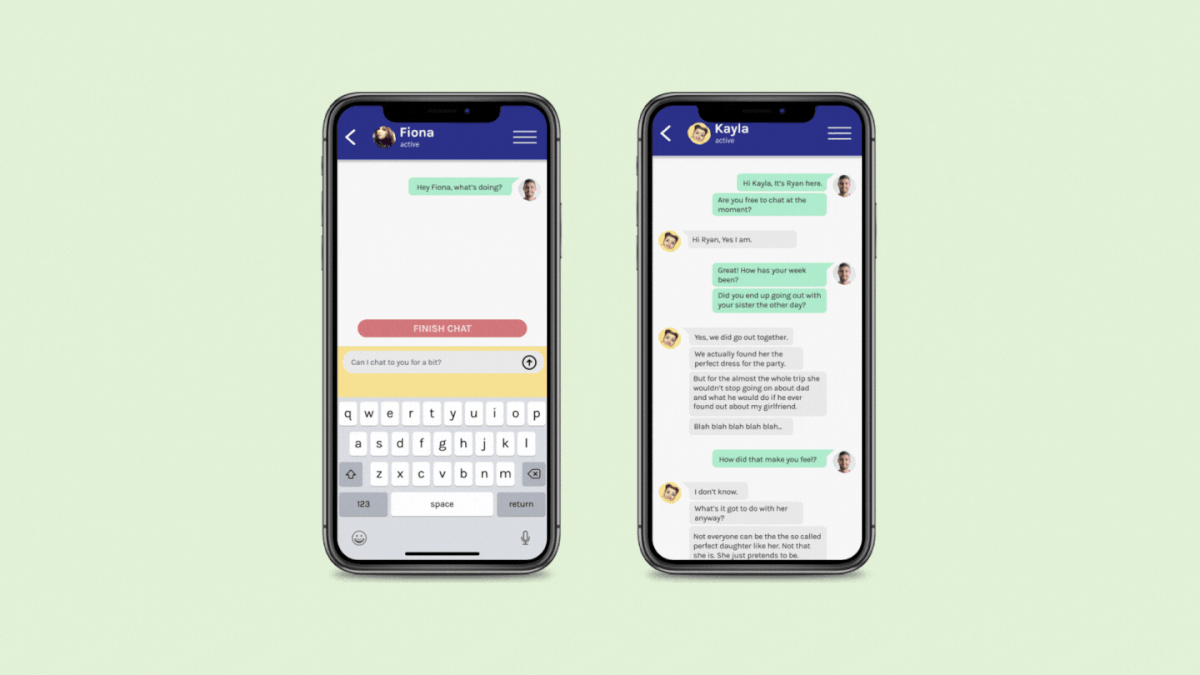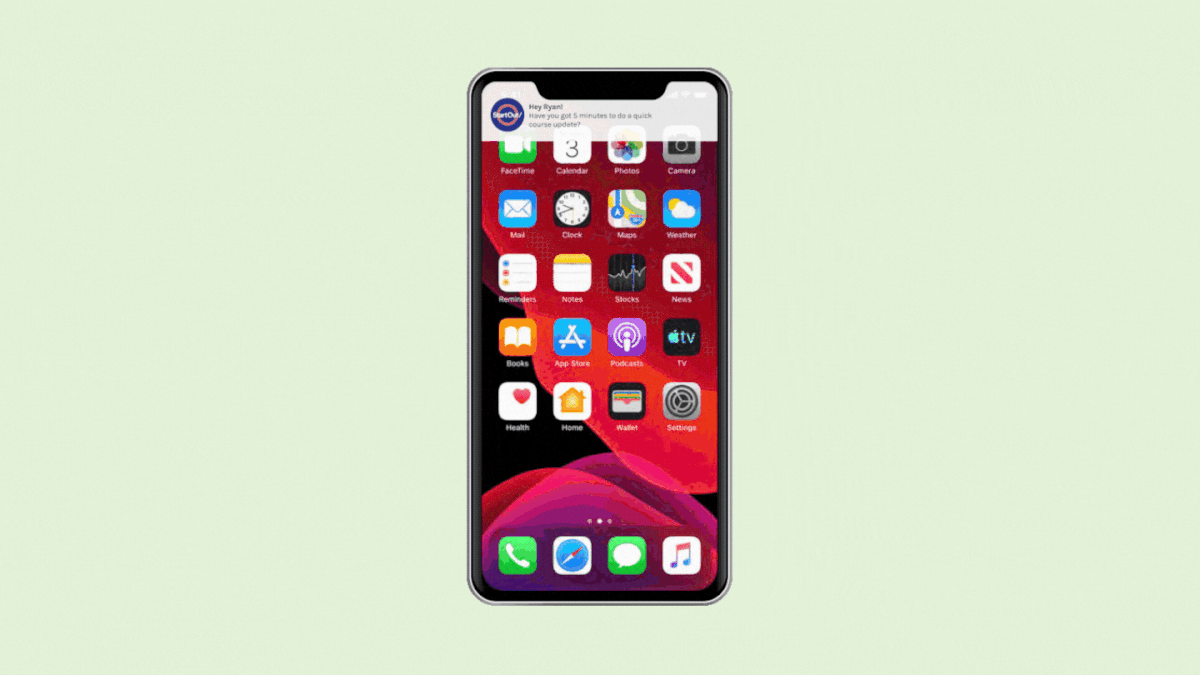StartOut Australia
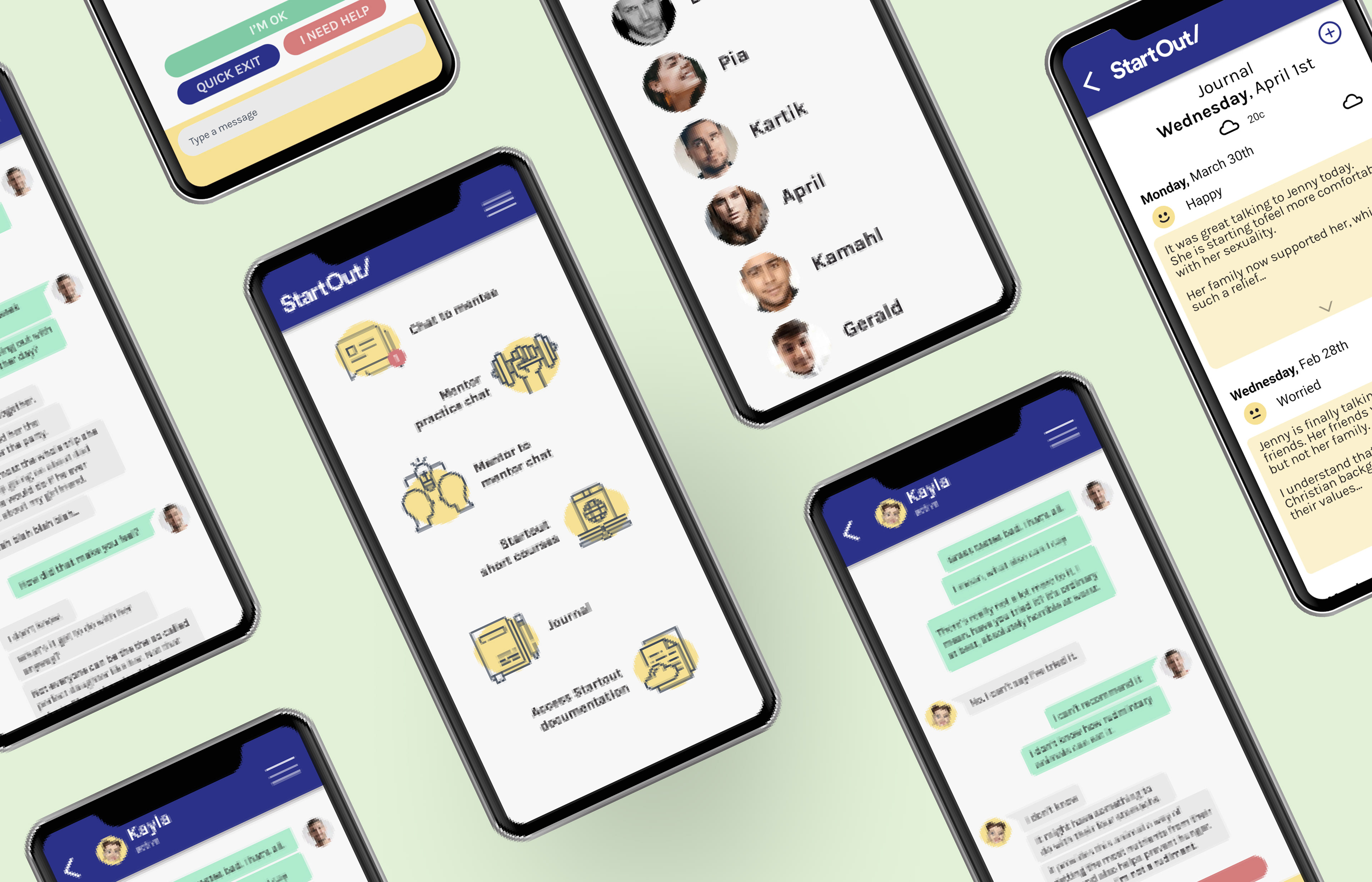
Empowering DSG Youth through Online Mentorship
StartOut Australia is a Health Promotion Charity dedicated to
supporting the mental well-being of young people of diverse sex,
sexuality, or gender (DSG). Their online mentorship platform
provides a safe, socially inclusive, and anonymous space where DSG
youth can connect with mentors for guidance, support, and personal
growth—regardless of their location.
This project aimed to enhance the mentor-mentee experience by
designing solutions that help mentors foster deeper, more meaningful
conversations and better support mentees in building resilience,
self-acceptance, and a positive self-image. The project was
conducted remotely over two weeks through intensive research,
design, prototyping, and testing.
Project type:
Academy XI
My role
As a UX/UI Designer, I was responsible for designing an improved mentoring experience by conducting user research, mapping mentor journeys, creating prototypes, usability testing, and refining the visual design.
Deliverables
✅ User Research (interviews, surveys, journey mapping)✅ Wireframes & Prototypes (Figma)
✅ Usability Testing & Iteration
✅ Final Visual Design & Presentation
Tools
🛠 Miro, Zoom, and Figma
Duration
📅 2 weeks (April 2020)
Project goals
🔹 Enhance engagement between mentors and mentees
🔹 Deepen conversations and provide structured interaction tools
🔹 Improve mentoring longevity by offering more support and
resources
🔍 Research & Key Findings
We conducted interviews with mentors via Zoom to gather insights on their challenges and experiences. Unfortunately, mentees remained anonymous, preventing direct interviews.
Key Insights from Mentors
We conducted interviews with mentors via zoom meetings. Unfortunately, we are unable to interview the mentees because they are anonymous. We discovered that:
- ❌ Lack of ongoing support – Many mentors felt underprepared after initial training.
- 📉 Long waiting periods – There was a 3-month to 1-year gap between training and receiving their first mentee.
- 📩 Missed opportunities – Mentors were not notified when a mentee reached out via the platform.
- 🔄 Unstructured interactions – Mentors often felt the mentoring process lacked guidance and would prefer more structured tools.
- 🚫 Communication barriers – If a mentee was hesitant to engage, mentors found it difficult to maintain the relationship.
📍 Mentor journey map
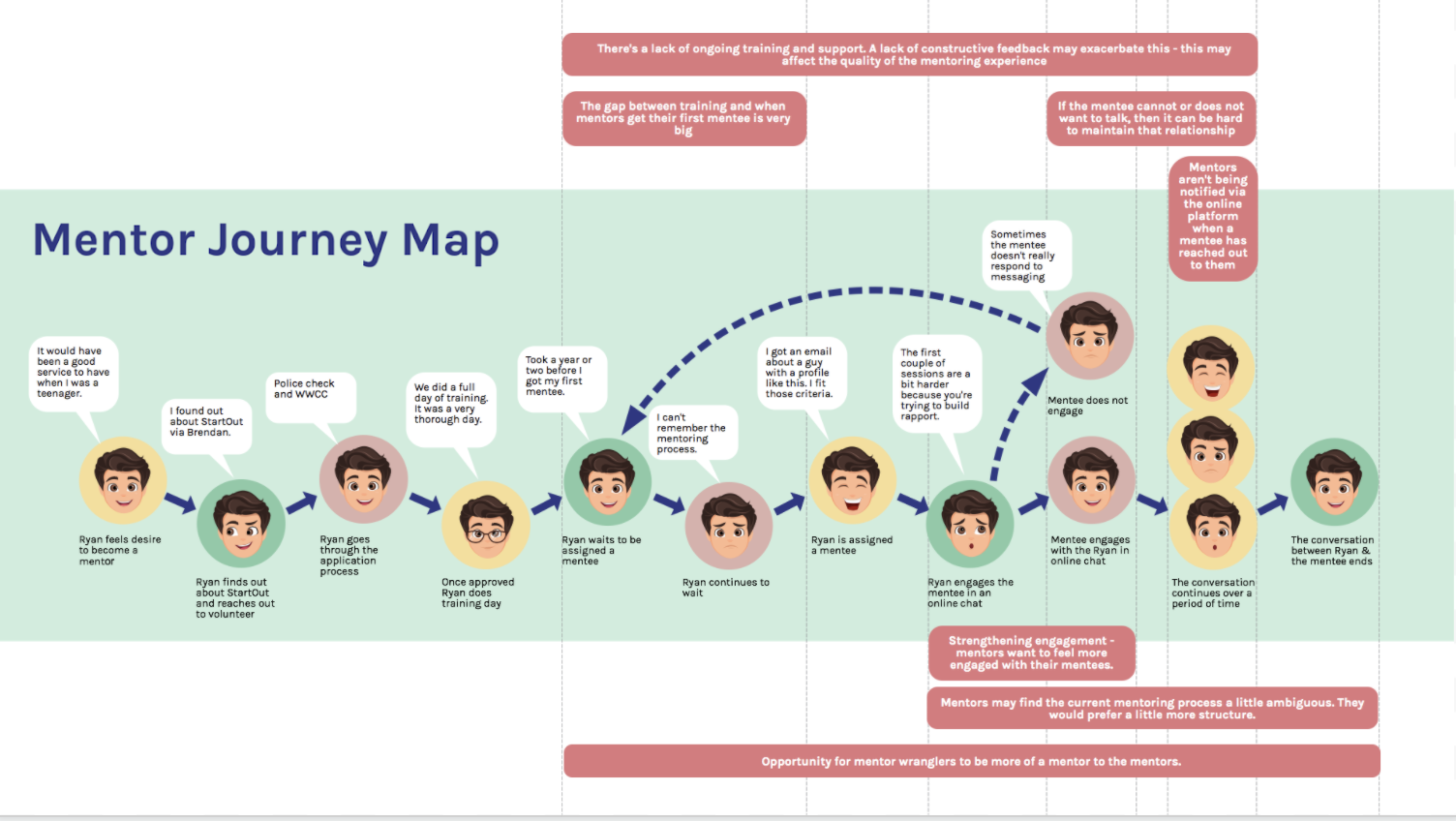
🧠 Ideation & Wireframing
Based on mentor feedback, I designed wireframes and prototypes incorporating features to improve mentor-mentee interactions:
Key Features
- Session Prep Toolkit: A resource hub with conversation starters, topic guides, and training refreshers to help mentors feel prepared.
- Mentee Progress Tracker: Visual indicators for tracking mentee growth and milestones, helping mentors recognize progress.
- Reflective Journaling: A built-in note-taking tool for mentors to log session highlights and revisit important discussions.
- End chat buttonAllows mentees to exit conversations easily, ensuring a safe and controlled experience.
🛠 Usability Testing & Iteration
We conducted usability testing with mentors to assess the effectiveness of the new features.
🔹 Usability Insights & Improvements
- ✅ Mentors found the Session Prep Toolkit invaluable, as it made initiating conversations easier.
- ✅ Iteration based on feedback – We streamlined access to in-session resources, ensuring mentors could use them without interrupting conversations.
Key improvements:
- 💬 Interactive Conversation Tools – Added guided questions, prompts, and mood check-ins to help facilitate deeper discussions.
- Resource Hub for Mentors – A dedicated library offering training refreshers, articles, and support materials on DSG-related challenges.
✨ Results & Reflections
🚀 Impact
The redesigned platform empowers mentors with the tools they need to provide meaningful, structured guidance to DSG youth. Feedback indicated that:
✅ Mentors felt more confident and prepared to guide mentees.
✅
Mentees found it easier to open up, making conversations more
impactful.
✅ A stronger mentor-mentee bond was fostered through structured tools
and better engagement.
🎭 What I Learned
This project emphasized the importance of empathy-driven design, especially when working with vulnerable communities. The mentor’s experience played a key role in shaping our solutions, but I also realized how crucial it is to integrate mentee feedback for future iterations.
🔮 Project Takeaways & Future Directions
This project reflects my commitment to inclusive, human-centered
design that prioritizes user well-being and accessibility. While this
phase focused on mentor experience, I recognize the need for direct
mentee feedback to refine the platform further. In future iterations,
I would:
🔹 Conduct research with mentees (if privacy allows) to ensure their
needs are fully addressed.
🔹 Further explore AI-driven engagement tools to provide dynamic,
tailored mentoring support.
🔹 Enhance the mentorship dashboard with more real-time progress
tracking and feedback mechanisms.
✏️ Digital wireframes
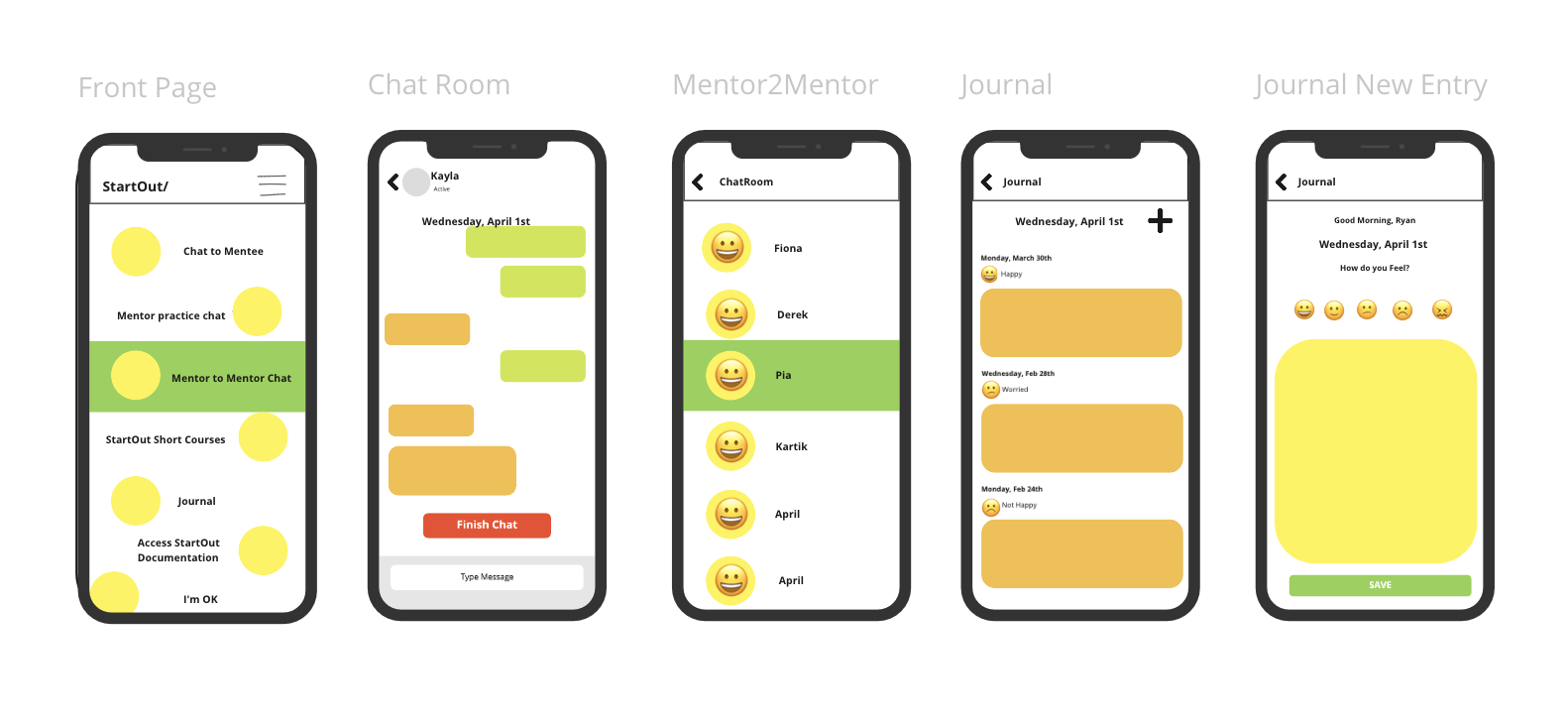
📱 The final product
